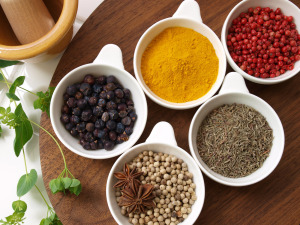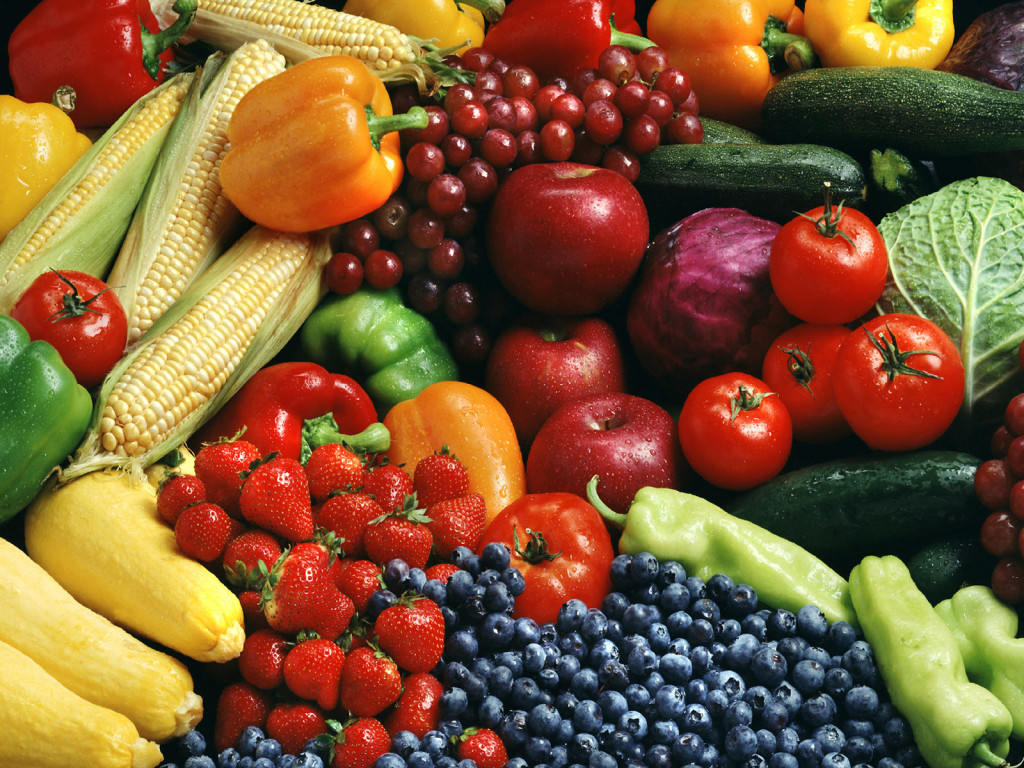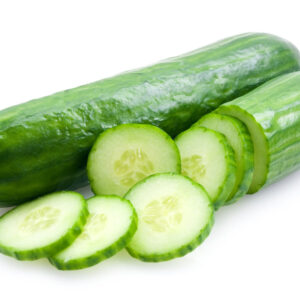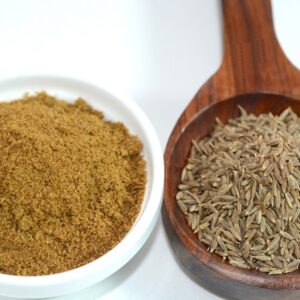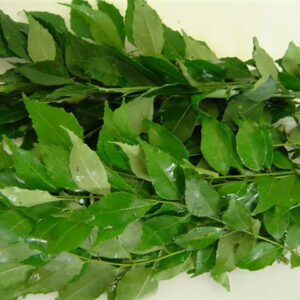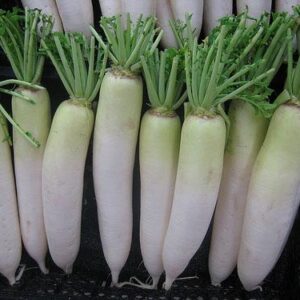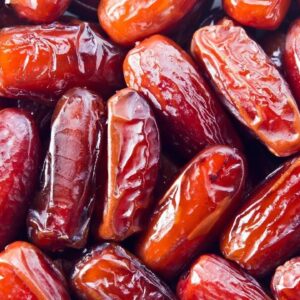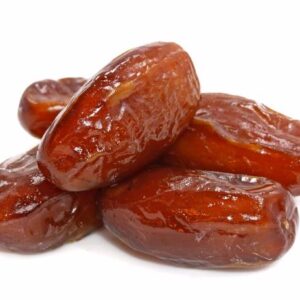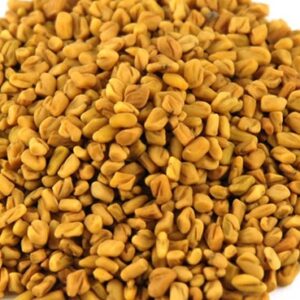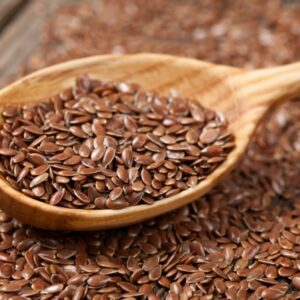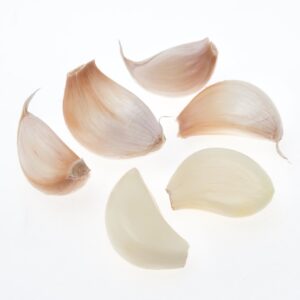Ingredients Nutrition Glossary
When we start using recipes, we may want to get some information about the ingredients we are using. This Glossary offers some of that information. Hover over the slightly highlighted Keywords to see an Image, a Description and a link to a related website for detailed information.
-
Cucumbers
Few foods are as cool as a cucumber. These low-calorie veggies contain many nutritional benefits, including hydrating properties and valuable nutrients.
Visit this Site for Nutrition Facts about Cucumbers. -
Cumin
Cumin seeds have great taste, add wonderful taste and flavor to any food. It has great health benefits too. It has Iron for Energy and Immune Function, and great for digestion, cancer prevention and many more great qualities.
Visit this Site for Nutrition Facts about Cumin Seeds. -
Curry Leaves
Curry leaves, Kadi patta, or Karuvepillai, is a staple in Indian dishes. Commonly used as seasoning, this leaf adds a special flavour to every dish. But there is more to the humble curry leaf than simply flavour. Packed with carbohydrates, fiber, calcium, phosphorous, irons and vitamins like vitamin C, vitamin A, vitamin B, vitamin E, curry leaves help your heart function better, fights infections and can enliven your hair and skin with vitality. Here are few health benefits of kadi patta.
Visit this site for more information. -
Daikon
Daikon is the long and white Asian variety of Radish. One benefit that you can get from daikon is its ability to improve digestion, thanks to an enzyme called diastase, which helps relieve indigestion, heartburn and may even curb hangovers. Discover the many benefits and culinary uses of daikon, and why you will not regret adding it to your diet.
Visit this Site for Nutrition Facts about Daikon (White Radish). -
Dairy~Milk
Dairy~Milk ~ Cow's milk is the best source of calcium and vitamin D in the diet. Milk is a rich source of protein too. This nutritious drink is perfect for balancing a meal or as a snack. Depending on the type of cow's milk you select, the nutrition facts will vary accordingly, especially regarding the calories and fat content.
Visit this Site for Nutrition Facts about Milk.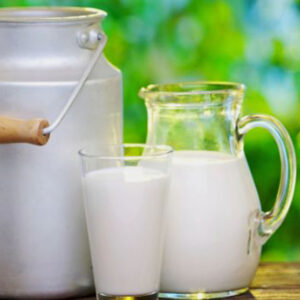
-
Dates~
The benefits of dates include relief from constipation, intestinal disorders, heart problems, anemia, sexual dysfunctions, diarrhea, abdominal cancer, and many other conditions. Dates also help in healthy weight gain. They are rich in several vitamins, minerals, and fiber.
Visit this Site for Nutrition Facts about Dates. -
Eggplant~
Previous NextEggplant skin contains 'nasunin,' a powerful antioxidant that protects cell membranes of the brain from damage, and a lot of other good things. When a thin-skinned eggplant is desired, Japanese eggplant is the ideal variety. Visit this Site for Nutrition Facts about Eggplants Visit this Site for Nutrition Facts about Japanese Eggplants

Fenugreek
Fenugreek seeds are tiny, bitter seeds of herb fenugreek. However, when you use a little bit in the recipes that call for it, their bitterness disappears. Toasted gently, they exhibit strongly aromatic flavor. Traditionally, fenugreeks have been found use to cure digestive problems along with other wonderful benefits.
Visit this site for more information.
Flaxseeds
Flaxseeds also known as common flax or linseeds, are small oilseeds that originated in the Middle East thousands of years ago. Flaxseeds have high content of heart-healthy omega-3, fiber and other unique plant compounds. They have been linked to health benefits such as improved digestive function and a reduced risk of heart disease, type 2 diabetes and cancer.
Visit this Site for Nutrition Facts about Flaxseeds.
Garlic
Garlic is closely related to onions, shallots and leeks. It is a popular ingredient in cooking due to its strong smell and delicious taste. However, the main use of garlic has been also for its health and medicinal properties. Calorie for calorie, garlic is incredibly nutritious. Garlic contains: Manganese, Vitamin B6, Vitamin C, Selenium, Fiber, decent amounts of calcium, copper, potassium, phosphorus, iron and vitamin B1. Garlic also contains trace amounts of various other nutrients. In fact, it contains a little bit of almost everything we need. This is coming with 42 calories, with 1.8 grams of protein and 9 grams of carbs.
Visit this Site for Nutrition Facts about Garlic

